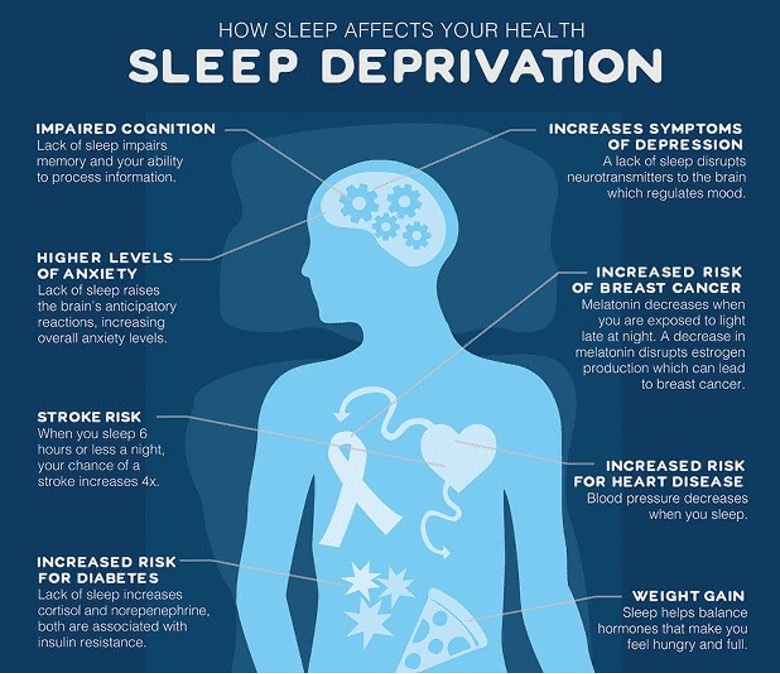Sleep: The Key to Good Health
Today’s health conscience consumer is working to optimize sleep, a big shift from the old school notion of “sleep is for the weak”.
From the moment we are born, the importance of sleep is apparent. As infants we sleep 12 to 16 hours a day, nap after every meal and spend most of our days drifting in and out of slumber. Babies need much more sleep than adults because sleep is essential to proper brain development and physical growth. In our teenage years, sleep is necessary to support our bodies through periods of growth and hormonal changes that accompany this time in our life. As we enter old age, we once again sleep often, take naps, and drift off in the middle of the day as chronic conditions plague our bodies and our circadian rhythms change.
Sleep is one of, if not the most important aspect of our health and without proper sleep we subject ourselves to developmental struggles, chronic disease, sickness, and fatigue that impacts our ability to achieve our true potential.
The age of wearables ushered in a renewed focus on the importance of sleep for not only infants, but people of all ages. The ability to track our REM cycles and understand our changing biomarkers throughout the night, such as HRV, temperature, etc., and how they affect quality of sleep, has helped emphasize the power of good sleep. Oura, was the pioneer in the space, advertising a smart ring that was focused on helping the consumer understand and optimize their sleep habits. After many years of R&D and slow consumer adoption, Oura finally caught a break and began its quick ascent to the top of the wearables food chain. As of recently, Oura has sold over 2.5 million rings to date and has completely changed the way consumers view the importance of sleep.
I personally grew up thinking, at least for physical health, fitness was first, nutrition second, and then a very distant third would be sleep on the scale of importance. Over the years, I have found out I was wildly wrong, mostly through trial and error… and a few Huberman podcasts. In reality, sleep is crucial for metabolism regulation and adequate sleep can prevent conditions like obesity and diabetes. Sleep also drastically affects heart rate and blood pressure, helping maintain cardiovascular health. Sleep enhances our immune response, helping the body fight off infections and regulates the release of important hormones that affect growth, stress response, and appetite.
Regardless of the physical impacts, sleep is vital for cognitive processes including learning, memory, consolidation, decision-making, and creativity. Adequate sleep improves mood and can reduce the risk of mental health disorders such as depression and anxiety. Sleep is also linked to a longer lifespan by reducing the risk of chronic diseases. And it is shown that well-rested individuals experience overall better quality of life and life satisfaction that those with poor sleep.
Another important factor of sleep is apparent in individuals’ day-to-day safety and performance. Sleep deprivation is one of the leading causes motor accidents due to impaired motor skills and reaction time from lack of sleep. Individuals who get good sleep also tend to perform better given sleep’s impact on problem solving ability and focus, enhancing overall productivity.
I could go on and on about all the great benefits of getting a good night’s sleep has on us, but I figured I’ll stop there and highlight a few of the recommendations to optimize your own sleep:
1. Aim to get 7-9 hours of sleep a night
2. Sleeping in rooms 65-68 degrees is optimal for the best sleep
3. Avoid eating 3 hours before bed
4. Avoid physical activity, stimulants and electronics for a couple hours before bed
5. Try to go to sleep and wake up at the same time each day
6. Take magnesium glycinate if you have trouble falling and/or staying asleep

Given this resurgence of focus on sleep, there have been countless startups popping up across wearables, software, CPG, and digital health. From democratizing access to sleep science, like the company Empower Sleep, to optimizing your mattress for sleep, like Eight Sleep. Companies across industries have tried to capitalize on the hype around the space. Oura is likely the most well-known and adopted sleep product on the market. Ozlo Sleepbuds are the latest innovation to enter the market. Originated from Bose’s health division that was shut down shortly after the product’s launch. The new and improved headphones aim to help you fall asleep and stay asleep by blocking out sleep disrupting noises and allowing you to stream sleep sounds all night long.
I guess what I’m trying to get across is sleep is a critical component of overall health, and arguably the most important element in our health and life span. Today’s new wave of health conscience consumers is beginning to appreciate its value. Hopefully the days of glorifying all-nighters in college, 18-hour workdays on Wall Street and 4am wake ups for the gym are in the rearview mirror for society. Good sleep will do more for you than a perfect diet and an impeccable training plan. Prioritize it, value it, and don’t skip it.






